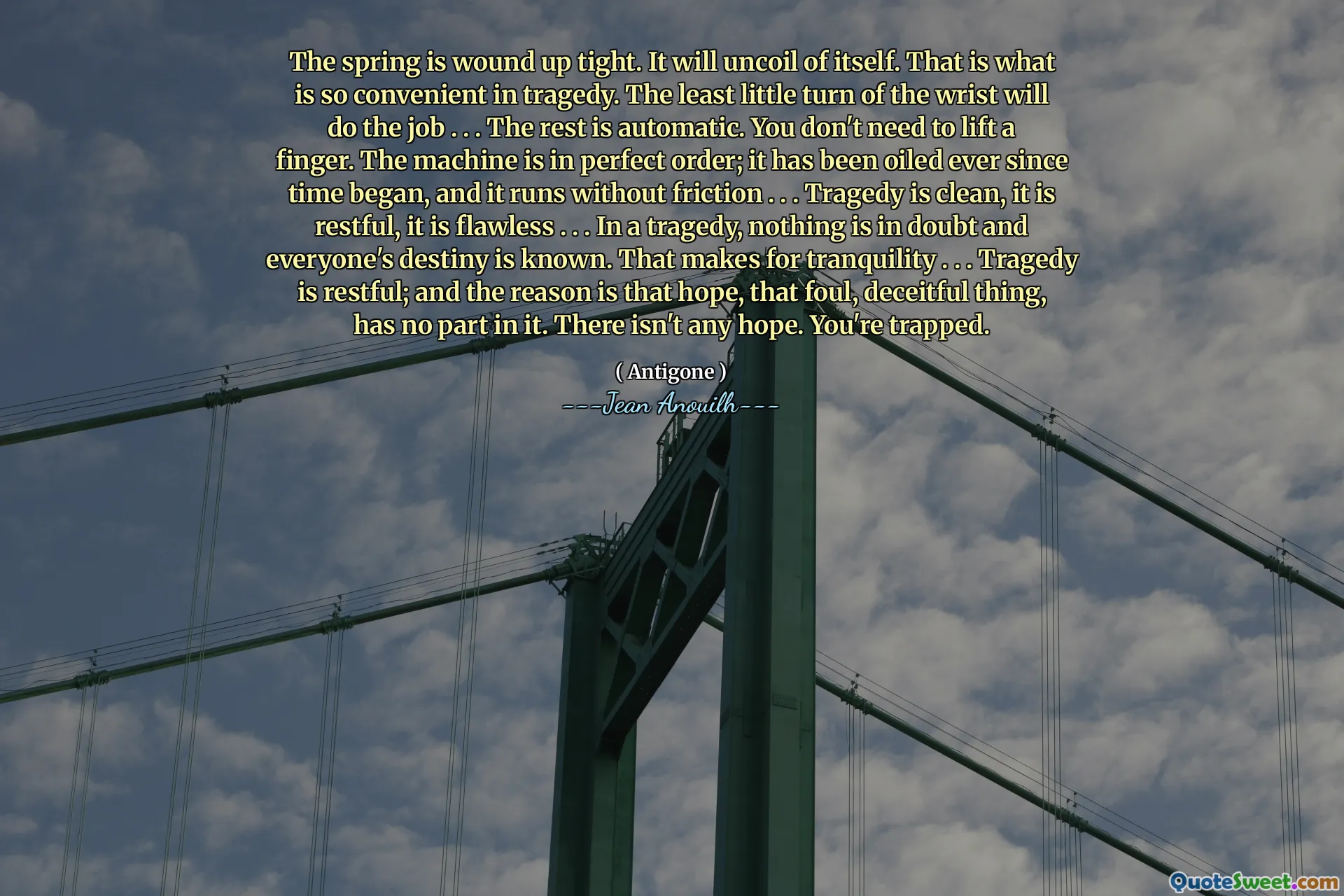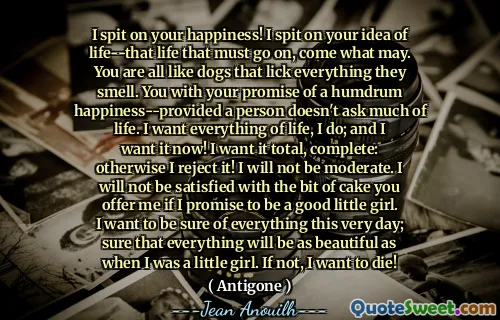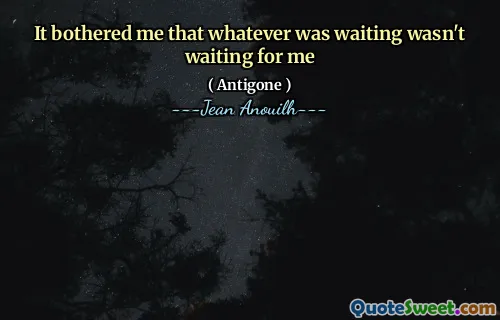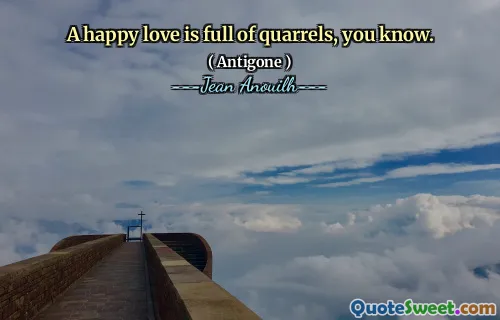
The spring is wound up tight. It will uncoil of itself. That is what is so convenient in tragedy. The least little turn of the wrist will do the job . . . The rest is automatic. You don't need to lift a finger. The machine is in perfect order; it has been oiled ever since time began, and it runs without friction . . . Tragedy is clean, it is restful, it is flawless . . . In a tragedy, nothing is in doubt and everyone's destiny is known. That makes for tranquility . . . Tragedy is restful; and the reason is that hope, that foul, deceitful thing, has no part in it. There isn't any hope. You're trapped.
In the quote from Jean Anouilh's "Antigone," the author reflects on the nature of tragedy, portraying it as a well-oiled machine that operates automatically. The idea is that tragedy unfolds effortlessly, with a mere twist of fate triggering inevitable outcomes. The predictability of tragic events brings a sense of calm, as everything is predetermined, eliminating uncertainty and doubt. This inevitability provides a certain allure to tragedy, presenting it as a flawless and peaceful existence.
Moreover, Anouilh emphasizes that tragedy is devoid of hope, which he considers a deceptive emotion. The absence of hope creates a sense of entrapment, where characters are confined to their fates without any possibility of change or redemption. This stark realization contributes to the restful and clean nature of tragedy, as it strips away the chaos often associated with hope and ambition. In this perspective, tragedy offers a peculiar sense of tranquility, presenting a world where destinies are settled and there is no struggle against the inevitable.











